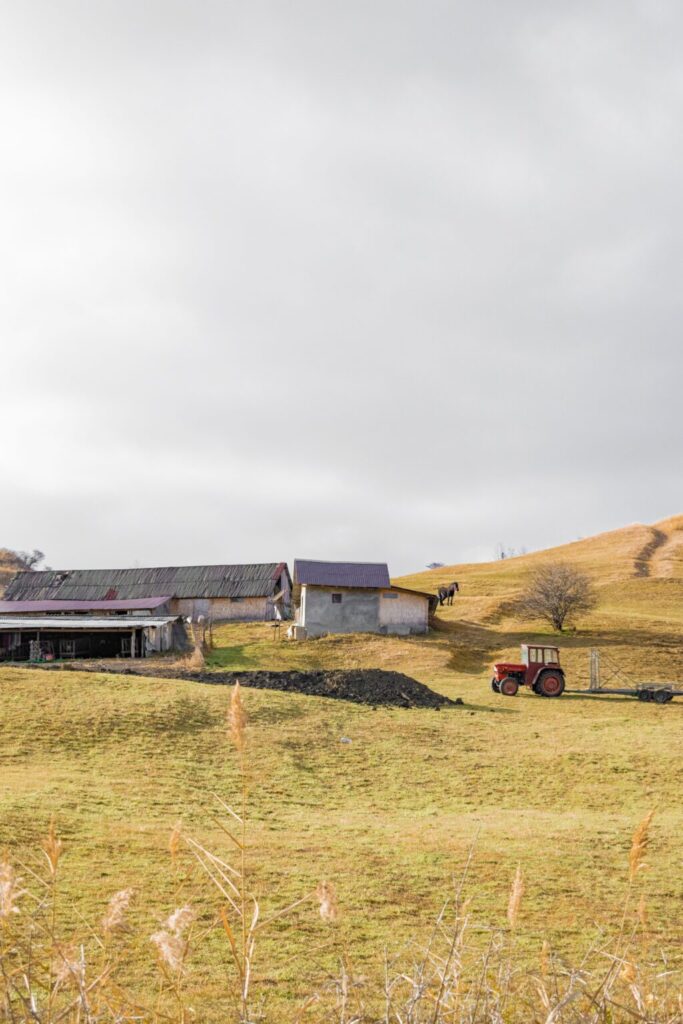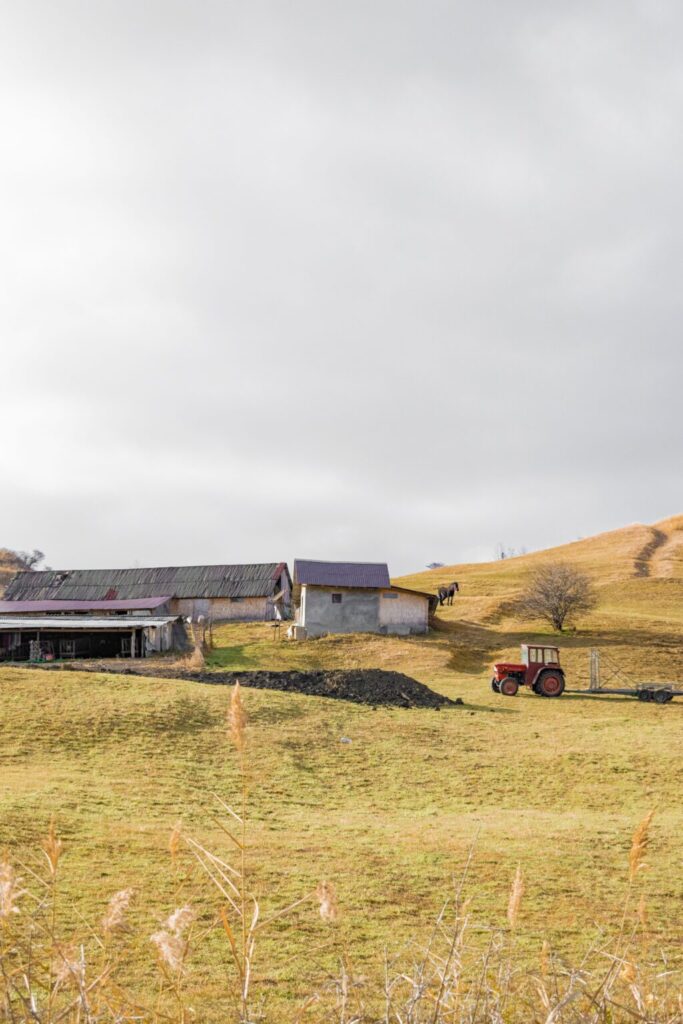Smithsonian Exhibition, Crossroads: Change in Rural America Explores Future and Sustainability of Rural Communities

A vertical shot of a red tractor on a grassy field and buildings in a background

January 1, 2024 – As part of Crossroads, a statewide exploration of life and change in rural Utah presented by Utah Humanities and its partners, Utah State University Eastern announces a collaboration with Utah Humanities to bring Crossroads, a Museum on Main Street (MoMS) exhibition from the Smithsonian Institution on a tour through Utah.
Utah Humanities is touring Crossroads: Change in Rural America to eight Utah communities from September 2023 to December 2024. Community organizations will partner with Utah Humanities to host the exhibition and connect their local stories through companion exhibits and programming.
The Smithsonian’s Crossroads is a traveling exhibition that provokes fresh thinking and sparks conversations about the future and sustainability of rural communities. Crossroads offers small towns a chance to look at their own paths over the past century – to highlight the changes that affected their fortunes, explore how they have adapted, and think about what’s next.
The opening of Crossroads in Price takes place at Utah State University Eastern and will enjoy a stay in Price from January 20, 2024 to March 3, 2024.
As an accompaniment to the Smithsonian’s Crossroads exhibition, a local companion exhibit, Power: Labor in Utah’s Coal Country focuses on rural labor and how Price area mining built a unique, multi-ethnic community. The exhibition weaves a holistic story that highlights the connections between local labor, women’s labor, and the larger labor movement.
In addition, a companion art exhibit Sacred Spaces in a Changing Landscape, features oil landscapes from local artist Terry Willis. Each painting is an effort to seize the moment of awe-inspiring beauty and allow the viewer to give the scene their own meaning. Willis’ paintings reflect sacred spaces in an ever-changing landscape before they become lost forever.
Complete details on Crossroads in Price are available at Utah State University Eastern and Utah Humanities and in this event document.
Dr. Michaelann Nelson, Associate Professor of English and USUE Writing Center Director at Utah State University Price Campus shares that “Hosting Crossroads is a great opportunity for our community and our university to come together. The exhibit’s emphasis on change in rural communities will resonate with our community as we work together to reorient our identity and find new ways to thrive and grow. We believe that hosting the exhibit will connect us with the community we serve and create a different way to engage with the university through this unique educational opportunity.”
Megan van Frank, Director of the Center for Community Heritage at Utah Humanities, is cooordinating the exhibitiontour in Utah. In explaining the role Utah Humanities plays in bringing the Smithsonian to Utah, she says, “We are proud tobring the Crossroads exhibition to eight communities around the state in 2023-2024. This collaboration among national, state, and local organizations strengthens Utah’s cultural community and helps preserve and share Utah history. We work closely with host sites to leverage the national exhibition to bring focus to their own experiences and bring context to an understanding of rural identity, land, and community.” Van Frank hopes that “visitors to the Crossroads exhibition will come away with an appreciation for the tension between cherished ideals and challenging realities of life in rural Utah.
Professor Greg Smoak of the University of Utah is the consulting scholar for the Utah tour ofthe Crossroads exhibition. He says, “Utah is an urban place with a rural heart. The vast majority of our state’s population lives in the densely populated cities of the Wasatch Front. Yet, if pressed, many of those urban dwellers might hesitate to think of themselves as city folk. That is because rural life holds deep and resilient meanings for many Americans, especially here in Utah. Contemporary pressures that drive change may seem daunting, yet adaptation has always been core to rural life in Utah. The changes and challenges facing small communities today are not unprecedented, and considering the ways Utahns have navigated decision points in the past might help us think about the future of rural Utah. The exhibition and each local project is an opportunity for Utahns to explore change and adaptation in rural America andUtah as part of local, state, and national conversations.”
Terri Cobb, Registrar at Museum on Main Street, Smithsonian Institution Traveling Exhibition Service / Smithsonian Affiliations remarks that “Crossroads: Change in Rural America is part of the Smithsonian’s Museum on Main Street program, a unique collaboration between the Smithsonian Institution Traveling Exhibition Service (SITES), state humanities councils, and local host institutions. We are proud to be partnering with Utah Humanities to bring Crossroads to eight communities across Utah throughout the next year. Crossroads takes a broad look at the characteristics of rural America. It explores how an attraction to and interaction with the land formed the basis of rural America and how rural communities and small towns evolve. It also highlights how change has transformed rural America and how rural Americans are evolving for the future.”
To learn more about the statewide tour, contact Utah Humanities at 801.359.9670 or visit the Utah Humanities website.
Crossroads: Change in Rural America is part of Museum on Main Street, a collaboration between the Smithsonian Institution, Utah Humanities, and Utah State University Eastern.




